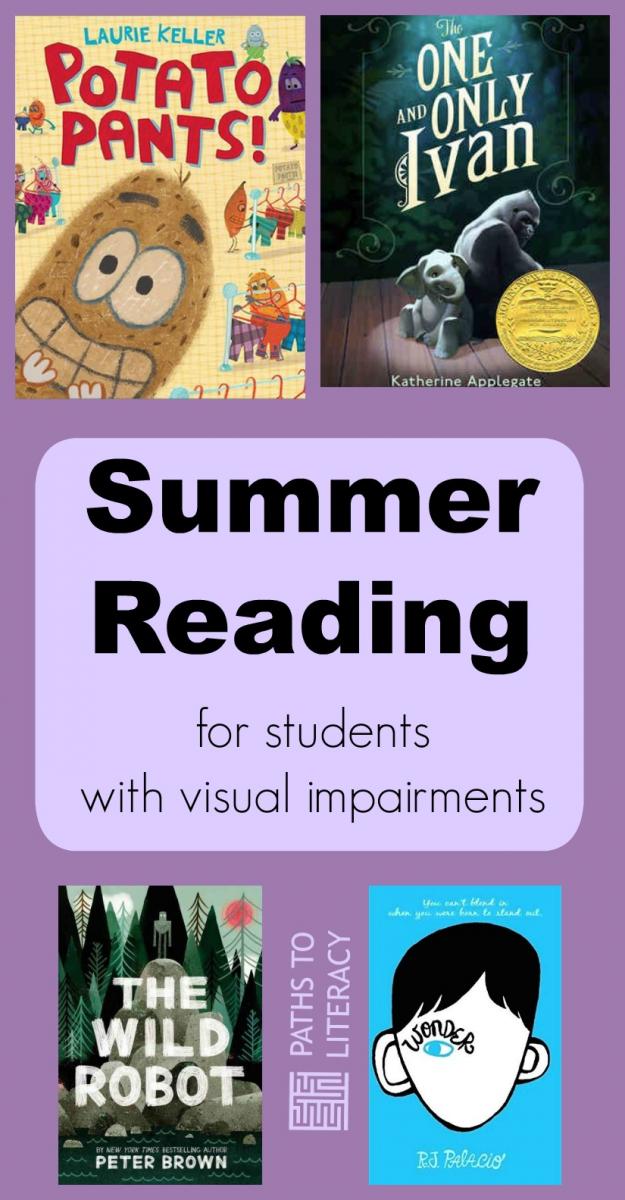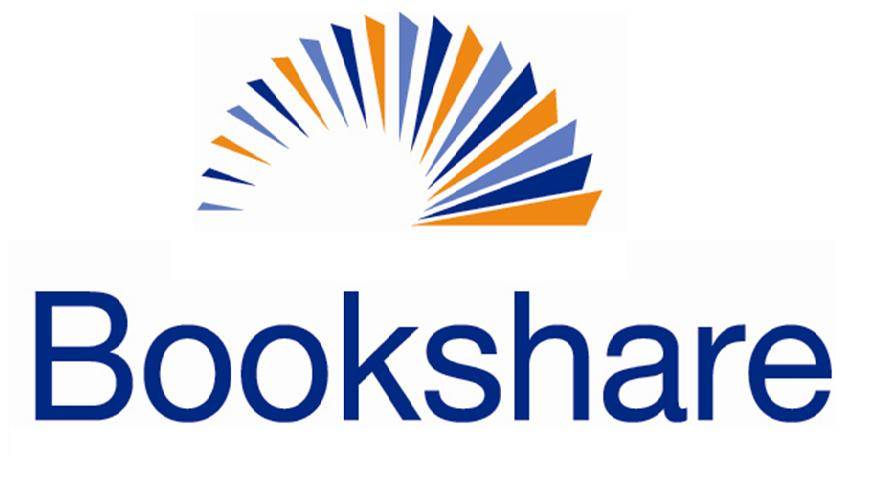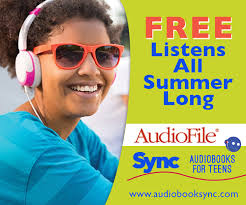Summer Reading: A Conversation with TSBVI Librarian
Renee Toy, who is the librarian at Texas School for the Blind and Visually Impaired (TSBVI) recently sat down with Outreach Director Emily Coleman to discuss summer reading. Their conversation is part of the podcast series A Sense of Texas. Listen to the podcast.
Renee Toy [00:00:00] After I read a book, I want to find someone else who has read this book so I can talk about it, talk about the characters. I do not want to answer a lot of comprehension questions or write a report. We want kids talking about books and making connections and I'd like our kids to be able to do the same thing.
Announcer [00:00:27] From the Outreach Department at the Texas School for the Blind and Visually Impaired in Austin, Texas this is A Sense of Texas. Here is your host Emily Coleman.
Emily Coleman [00:00:42] Welcome to A Sense of Texas. I'm Emily Coleman. As an educator and parent I'm always promoting reading in school and at home. I'm an avid reader myself and love to talk books. With summer quickly approaching, we wanted to talk up Renee Toy, our learning resource director, to find out what's happening at TSBVI for literacy and to get ideas for encouraging reading when school's not in session. After Renee, be sure to stay tuned to hear from Outreach's own Scott Baltisberger who is sharing with us an exciting resource.
Maker Space Area in the Library
Renee Toy [00:01:18] We always have a lot of things going on in the library and so probably our biggest thing that's happened this year is we have created a Maker Space area in the library and that has taken off and been far more successful than I ever imagined. There is everything from yarn and glue and Legos, all the way up to little bits of electronic parts that can snap together and teach children about circuitry and beginning coding. And there's tools and power tools and just all sorts of stuff. And the students and classes have loved it.
The thing I love most probably about the Maker Space is that the same materials can be used with all our students. There's something for everyone there. And I've also seen teachers come with students who might be having some anxiety and if they sit and create something it really reduces stress. And I've seen a lot of success with several of our students who have a lot of anxiety. Plus it's just fun to make things.
So that's probably one of our biggest successes then. And I'm really happy about it. Some of the students who are finished with testing, or their teachers might be administering a test, come to the library. Most of them ended up making something in the Maker Space. One of our middle school students made what looked like almost a life-sized dragon out of duct tape and cardboard and wood and it had bendable wings and it was just-- And he inspired other people to make things and it was just a really nice thing that we had that students were able to access.
We also have--
Emily Coleman [00:03:09] Yeah, go for it. I was going to say I know you got more than just that.
Coding Club
Renee Toy [00:03:11] Yes. Last year we had a coding club where we had-- it happened in the evenings and students from UT [Unversity of Texas] came who were in computer science. They came once a week and did coding activities with our students. This year we have an actual coding class. I don't teach it, but our adaptive material specialist and one of our technology teachers, they have been teaching that all year and it's just right after school and it is a huge success. We're hoping to expand that for next year and have more students. We'd love to see more girls join. Right now it's just a class of boys, but it has been a huge success. And I'm really proud of that. And they were able to do that this year.
Positive Impact Related to Literacy
Emily Coleman [00:03:54] How do you know when you've made a positive impact related to literacy?
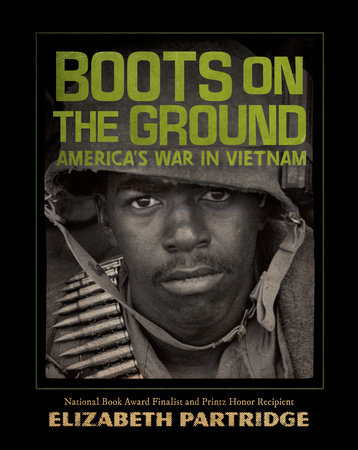 Renee Toy [00:03:58] Well, sometimes I hear from the teachers how specific books have affected their students in a positive way or how they're using a book recommendation in their classes. So you know I always like that. But I think yesterday I gave a book called Boots on the Ground about the Vietnam War to one of our history teachers who had just happened to be in the library. And so just before I came over here, she stopped by to tell me she read the foreword to her class earlier today. And they loved it. They're studying the Vietnam War. And she said it was the perfect choice and so I was thrilled that she stopped by to give me that feedback. But also I know when students come to me to get the next book in the series that we've all been waiting for.
Renee Toy [00:03:58] Well, sometimes I hear from the teachers how specific books have affected their students in a positive way or how they're using a book recommendation in their classes. So you know I always like that. But I think yesterday I gave a book called Boots on the Ground about the Vietnam War to one of our history teachers who had just happened to be in the library. And so just before I came over here, she stopped by to tell me she read the foreword to her class earlier today. And they loved it. They're studying the Vietnam War. And she said it was the perfect choice and so I was thrilled that she stopped by to give me that feedback. But also I know when students come to me to get the next book in the series that we've all been waiting for.
Emily Coleman [00:04:46] That's huge. Yeah.
Books for Students Who Are Not Yet Reading
Renee Toy [00:04:46] The elementary kids this year have been checking out a ton of books. We have a few who can see some of the pictures. And so a lot of the picture books are-- they just come with five or six books each week and then they trade them out every week. So we've been able to purchase a lot of new books this year with our-- thanks to a yearly grant with the Junior League of Austin -- and we receive funding and volunteers who transcribe the books and record them. So-- just for use for students at our school. Yeah. And so the younger books are what we've concentrated on; increasing the number of our uncontracted braille books and UEB. So it's especially gratifying to see those books being checked out and enjoyed by our students, and the Junior League has recorded so many books for our students who are aren't exactly reading just yet. They can leave with a stack of recorded books.
Emily Coleman [00:05:51] Oh wow.
Audio Books: Inspiring a Love of Literacy
Renee Toy [00:05:51] So it's been nice to have such a huge selection of audio books for the kids so. And also I love it when people overhear the students in the hallway talking about books. They might be chatting and because it really-- the culture of book readers and literacy and literature is is what I've been striving for.
Emily Coleman [00:06:15] Yeah! I think that's a great thing to strive for.
Renee Toy [00:06:17] This year one of our sixth graders-- his class has been coming once a week. He's listened to the stories. He's never checked out a book. He enjoys listening, but when it's time for book checkout he goes and explores our little bits and all the electronic components we have in the Maker Space. And so a couple of months ago he asked for a book player. He wanted to listen to some stories at home or in his classroom and so I checked out a Victor Reader Stratus that we had. It's registered through BARD [Braille and Audio Reading Download] and so I got a couple of BARD books. We were reading The Wild Robot by Peter Brown and he asked for that and then the sequel to it: The Wild Robot Escapes. And so I put both of those on an SD card and showed them how to use the player and he's real good with electronics. A week later his class came he said, "Oh Ms. Toy, I've read both of those books twice." Then when he stopped with his class just a few weeks ago, it was just like something out of a teacher's dream. He is with his class. He said, "Oh, Ms. Toy, I've loved all the books and now I'm learning to read braille and it's not as hard and I'm loving it." And he went on and on about how his teacher who is just a rock star. She's such a good teacher and he's so happy. Is it a coincidence that that happened right after he started listening to two books? That's probably a big success story this year. And what a difference that's going to make in his life.
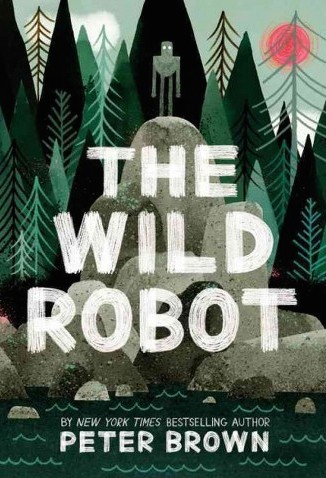
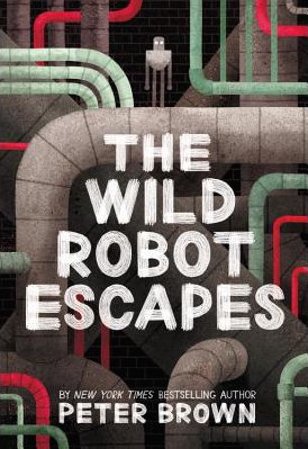
Popular Books for Kids
Emily Coleman [00:07:48] Oh for sure. That's very cool. You've already mentioned a few books that I'm not familiar with. So what are the most popular books in our library or what would you say kids are reading these days?
Renee Toy [00:07:58] Definitely a wide variety of literature in all genres.
Emily Coleman [00:08:02] Oh really.
Renee Toy [00:08:02] Kids like fantasy, historical fiction, realistic fiction, nonfiction, and graphic novels.
Emily Coleman [00:08:10] OK.
Renee Toy [00:08:11] And book series are still wildly popular. Harry Potter. And the Lightning Thief series by Rick Riordan.
Emily Coleman [00:08:20] I know a lot of kids that love those.
Book Ideas for Young Readers
Renee Toy [00:08:21] The younger kids enjoy funny books like Potato Pants by Laurie Keller and We Don't Eat Our Classmates by Ryan Higgins. Those are two really funny books that have come out recently. And they really like series like Pete the Cat and the Elephant and Piggie Books by Mo Willems.
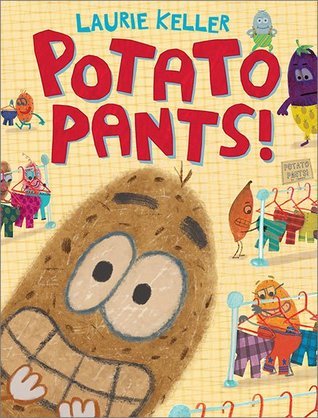
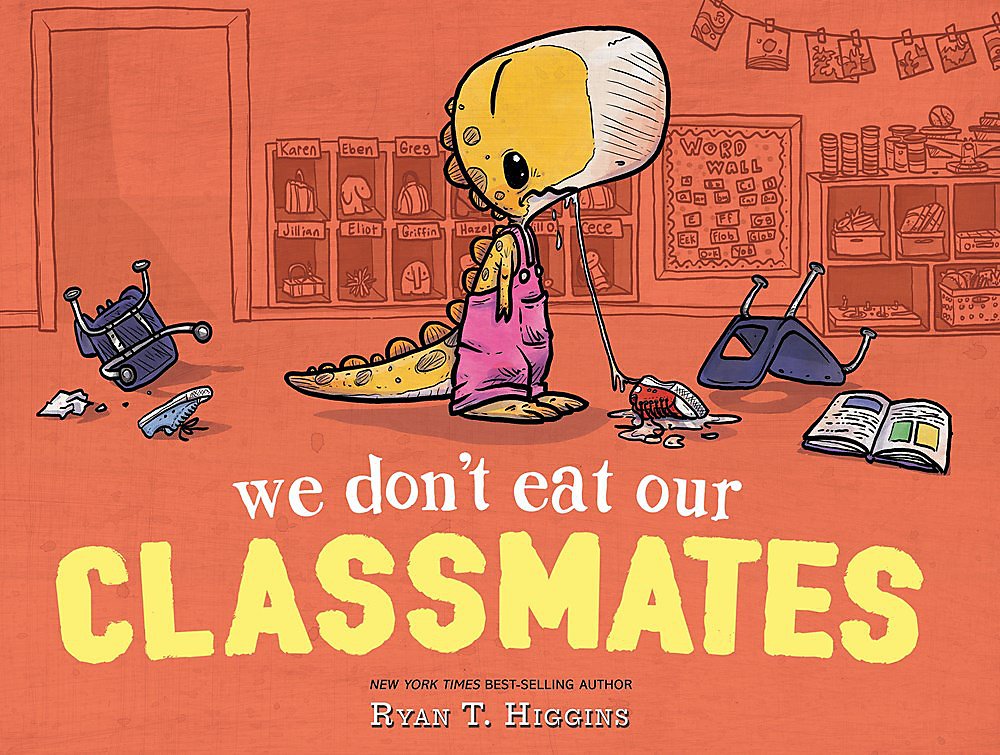
Book Ideas for Middle Grade Readers
The middle grade books that are real popular: The Wild Robot by Peter Brown that I mentioned earlier. Wonder is still--
Emily Coleman [00:08:51] Oh, it is!
Renee Toy [00:08:51] That book will always hold a special place in my heart.
Emily Coleman [00:08:53] It was a great book.
Renee Toy [00:08:54] One of the ones that a few years back we transitioned our class that only could do picture books Wonder was the book that they picked. And so it was our first book. All those kids are in high school now, but in elementary that was our first book that they were able to sit and listen to instead of just like one or two picture books.

Emily Coleman [00:09:11] That's great.
Renee Toy [00:09:12] The War That Saved My Life. House Arrest. 442. We just finished that in one of my classes; that's about the Japanese-Americans who fought during World War II. My class of boys wanted to listen to it. So I read a little out of my comfort zone. I try not to read books about war or animals because they make me so sad. But the kids love them and we all learned a lot. The One and Only Ivan is still real popular. Rain Reign. Refugee by Alan Gratz and Diary of A Wimpy Kid.
Emily Coleman [00:09:46] Oh yeah.
Book Ideas for High School Readers
Renee Toy [00:09:46] Always, always popular. And our high school readers. Dystopian books.
Emily Coleman [00:09:51] Oh, for sure.
Renee Toy [00:09:52] Still one of the most popular genres, so anything by Neal Shusterman. His Scythe series or Unwind series. Legend and The Young Elites by Marie Lu. Shatter Me by Tahereh Mafi. Fantasy books.

Emily Coleman [00:10:07] Yeah.
Renee Toy [00:10:07] The Red Queen series by Victoria Aveyard.
Emily Coleman [00:10:10] Oh, yeah.
Renee Toy [00:10:10] And anything by Sarah Jane Moss. The Lunar Chronicles by Marissa Meyer are still-- they're a little older but they're still real popular. The retelling of fairy tales with a sci fi fantasy twist.
Emily Coleman [00:10:22] Oh my gosh.
Renee Toy [00:10:23] Ember in the Ashes is another great fantasy series. We still have a lot of students who like nonfiction, so yeah just pretty much--.
Emily Coleman [00:10:30] There is a lot of stuff there.
Renee Toy [00:10:31] There are. I had to narrow this down too before I started talking about books because otherwise I would take up our whole time.
Emily Coleman [00:10:38] Oh my gosh. Do you have ideas for summer reading? I bet you do.
Bookshare
Renee Toy [00:10:43] Absolutely. I'm going to first talk about Bookshare.
Emily Coleman [00:10:46] Oh yeah.
Renee Toy [00:10:47] I love Bookshare. I mean I really love Bookshare. Their summer reading program provides access to books for the Collaborative Summer Library program. They've got wonderful reading lists including fantasy and science fiction, non-fiction. Kids can access Bookshare's audio or with the word level highlighting that they have, the text-to-speech highlighting, the Braille files and the text that can be customized with color and the text size. So there's a lot of options for Bookshare.
Emily Coleman [00:11:20] Yeah and that's free, right? Bookshare to individuals?
Renee Toy [00:11:23] Bookshare is free to any K-12 student in the United States.
Emily Coleman [00:11:28] And is it just for those that have some sort of a print disability which could be related to a visual impairment or something else?
Renee Toy [00:11:35] Yes. Anyone who cannot access regular print whether it's a physical or some sort of print disability such as dyslexia; someone with cerebral palsy; someone of course with a visual impairment.
Emily Coleman [00:11:47] Great.
Audiobook Sync
Renee Toy [00:11:47] Another option is Audiobook Sync. S Y N C.
Emily Coleman [00:11:51] I haven't heard of that one.
Renee Toy [00:11:52] They offer a free summer audio book program for teens aged 13 and up. Sync is sponsored by Audiophile Magazine and the titles are delivered through the Overdrive app. You can sign up to get notifications when the free audio book downloads are available and you can receive alerts for through text messages or email newsletter or just by visiting their website at audiobooksync.com. So I've already started downloading my two free books and I want to point out you can keep those books forever if you want. They don't disappear on your phone like when you do loans through the library. Another option is Learning Ally. They have a wonderful summer reading program. Teachers can sign up their students for summer reading together. They got fun reading lists or you can assign any other books you think your student would enjoy. And they offer prizes. I think Learning Ally offers some prizes for someone-- for the students who read the most.
Emily Coleman [00:12:59] That's great.
Learning Ally
Renee Toy [00:12:59] I used to think of Learning Ally as really only a place where-- that's where we get textbooks and I'd never thought about them as a place to get books to read for pleasure. But that is not the case anymore at all. They have a huge variety of books and real current books and accessing them through audio is not the only way. You can download books with the app on your iPad and you can read them with a voice word match. Kind of like Bookshare offers and so you can listen to it or you can hit play on your iPad and it'll go through and you can highlight the text and the foreground and background colors, whatever that is the best for your particular student.
Emily Coleman [00:13:47] Nice.
National Library Service
Renee Toy [00:13:47] So the Texas Talking Book program and BARD is also another way to get audiobooks throughout the summer or braille books too. It's all free. Anyone-- just like Bookshare, Learning Ally-- anyone with a print disability is eligible and they will send a digital talking book player straight to students houses. I try to make sure all of our students are registered. Even our older ones who are not interested in the player, they are eligible to have a BARD account which is braille and audio reading download. And they can access the same books that they send out through the digital cartridges. I send home cartridges that I've ordered that are blank and I will put 30 to 40 books.
Emily Coleman [00:14:32] Wow.
Renee Toy [00:14:32] And that way the kids have a lot of choices over the summer.
Emily Coleman [00:14:35] Yeah! It's really nice and every state has that, I think.
Renee Toy [00:14:37] They do. That is correct.
Emily Coleman [00:14:40] So if you're listening from a different state you probably have a Talking Book and Braille library.
Renee Toy [00:14:45] Right. It's all available through the National Library Service.
Emily Coleman [00:14:48] Yes. That's very cool.
Public Libraries
Renee Toy [00:14:49] And I also urge people to check out their public library. All of our students here at our school they're all eligible for an Austin Public Library library card. And once they have those they can access the library's vast e-book selection and their audiobook selection as well. They have the platforms Hoopla, Libby, or Overdrive. So I would definitely encourage parents or families to take advantage of what their local public library has to offer. And I also wanted to emphasize that if you're a parent or VI teacher and don't necessarily know about the latest and greatest children's or young adult books, all the organizations I've just mentioned have a large variety of reading lists and they're organized by age and genre.
Emily Coleman [00:15:37] OK.
Renee Toy [00:15:37] So if you're looking for an adventure book for a 10-year-old or a middle school student, check out one of their lists. You're going to find a ton of suggestions. And then I also encourage the teachers to make sure their students are registered for all of these services. Bookshare and Learning Ally, the Talking Book Program and Bard because that way your students will have a choice. Sometimes one book is available on Learning Ally but it might not be on the Talking Book Program. And that way it gives them some flexibility and just more choices. Which I think is a great thing.
Emily Coleman [00:16:13] Yeah.
Renee Toy [00:16:14] In the past I've encouraged all the students to read at least five books over the summer and then we'll have some sort of book celebration when they return in the fall.
Emily Coleman [00:16:22] Oh cool!
Renee Toy [00:16:22] But what I found is a lot of the students read many, many more books than that. But for students who want to read hardcopy braille, we're already getting lists of books that students are interested in reading and then we will emboss them with Bookshare files and then we can send hardcopy braille home with students.
Emily Coleman [00:16:42] Nice.
Renee Toy [00:16:42] And I'll also go into Learning Ally and just assign as many books as I can to students who I know will want to access books on the app, on their phone, or on their iPad. And so it's all about just-- all about choice.
Emily Coleman [00:16:59] You're just busy getting everybody ready for summer.
Renee Toy [00:17:02] Yes. So they'll have a fun summer and be able to have a lot of choices to read over the summer.
Emily Coleman [00:17:08] Yeah.
We All Want Our Children To Be Readers
Renee Toy [00:17:09] We all want our children to be readers. And so I urge people not to lose sight of this. First of all and most importantly is that kids need access to books. Books at school and in their home and books in the most appropriate format for them that they're able to access; whether it's print, large print, braille, or audio. And these days with the ease of digital files, the barriers to books and appropriate formats should not be as difficult as it has been in the past when everything had to be hard copy braille and large print meant giant books in black and white. No one really wanted to read those.
Emily Coleman [00:17:52] Right.
Renee Toy [00:17:53] And also I firmly believe that kids who say they don't like to read have just not found the right book.
Emily Coleman [00:17:59] Yeah.
Renee Toy [00:18:00] Or it could be they've had some bad experiences with reading for one reason or another. It could be-- they could have a reading disability. It could just be too hard for them. And none of us really like to do things that are too hard. We want children to be motivated to read and we want them to develop positive attitudes toward reading books.
Emily Coleman [00:18:22] Yeah.
The Importance of Student Choice
Renee Toy [00:18:23] That being said: choice. Student choice is the key to turning students into readers. It just is. There's research out there that supports it, it's not just my opinion. And then the format. I do have to admit I did not always understand the value and the power of audiobooks. So I would say to people: Let your child or your student listen to books if they would like. They don't always have to have their hands on a braille book to be enjoying stories. I mean I'm all about braille. I love braille. I love teaching braille. I think it's important. I'm a good reader, but I listen to audiobooks more than reading hard copy books. We're all busy and I'm able to do more things. It's not like I learned less or remember less from the book if I listen to it.
Emily Coleman [00:19:21] Personally, I love audiobooks because you can speed them up and so I can get through books so fast.
Renee Toy [00:19:29] Yes!
Emily Coleman [00:19:29] And I just-- I have a 15-year-old and she's cranking it up to like two times now. I can't go that fast, but she just plows their books.
Renee Toy [00:19:37] Wow. I always-- I usually speed them up as well because I'm the same way. I went to listen to more books. I have a huge reading list. And I'm able to cook dinner while I'm doing that. Or drive somewhere and so it just-- I'm able to do more. Anyone who thinks that children outgrow being read to? I think about the thriving audiobook business.
Emily Coleman [00:20:03] Right.
Renee Toy [00:20:04] And some books actually just lend themselves to being listened to. I think of Trevor Noah's Born a Crime. Our students have enjoyed listening to-- our high school students. And Michelle Obama's book Becoming because both of Michelle Obama and Trevor Noah each read their respective books. It's like they're just talking to you. It's wonderful. I think about some of our students who possibly live in what I've heard referred to as "book deserts" and their families may not have the resources to have books in their homes or they might not be able to access public libraries or bookstores. What it means is that the child's school may be their only access to books. And for our students with visual impairments that could mean that their VI teacher is maybe their only source for books in their home. So that's something important to keep in mind. You know, your teachers know who these students are and hopefully how best to help them. So I hope they're able to get talking book players to students and with cartridges or at least a jump drive full of books and show them how to access them or being able to braille hard copies of books. Something else I think people need to keep in mind is don't make kids read what you loved as a child.
Emily Coleman [00:21:30] What?!
Renee Toy [00:21:30] I know! That is a hard one for everyone and I too read all the Little House books when I was a child. But if you have an active 9-year-old student they might not enjoy reading about Pa and Laura building a door. As much as you might think they do. There's so many other books that that you can pick. And like I said before, you don't have to know what they are. Go to these reading lists, figure out what your student or your child enjoys. What do they liked to listen to? What are they like to read? What are they interested in? And get books about that. Make sure that the books they have that they can read independently. If they're a struggling reader and reading far below grade level, giving them a big book in braille is not a good idea.
Emily Coleman [00:22:28] Yeah, yeah.
Creating Experience Stories for Pre-Readers
Renee Toy [00:22:29] Now I think about our students who are not quite reading yet our pre-readers. We have the most creative teachers at our school. So for kids who are not ready for traditional books and are working on language and concept development, teachers create experience stories using pictures if the student or their child can see pictures. They may use objects or tactile symbols. And so these students may have books about going grocery shopping, going to the park, making breakfast, or other activities in their daily routine. Especially at the end of the year I see a lot of teachers in the library making these books to send home with students for the summer.
Emily Coleman [00:23:12] That's awesome.
Renee Toy [00:23:13] It really is. They're using the laminater. We have card stock to create for literacy projects and sometimes the teachers are with their students. They're creating these books together and we have a lot in our library as examples of books in all of those objects-- pictures or objects or tactile symbols. Teachers can be very mindful of what you expect kids to do after they read a book. No author wrote a book so a kid can be handed a stack of worksheets or be expected to do a book report.
Emily Coleman [00:23:51] Yeah.
Creating a Culture of Readers
Renee Toy [00:23:52] So you know I think about what I like to do after I read a book. I do not want to answer a lot of comprehension questions or write a report. I want to find someone else who has read this book.
Emily Coleman [00:24:07] That's a great point.
Renee Toy [00:24:08] I try to get other people to read books that I've read so I can talk about it. Talk about the characters. And so that's what we want. So when I say I want to create a culture of readers and that's what we want: kids talking about books and making connections and that's-- I'm a member of two book clubs and that's what we do. We chat. And so I'd like our kids to be able to do the same thing. And finally I'd say: let students know it's okay to abandon a book. If you're reading a book-- Life's too short. Try something else. That might not be the right book.
Emily Coleman [00:24:46] We've all slogged through books that we haven't enjoyed.
Renee Toy [00:24:50] That's true.
Emily Coleman [00:24:51] And at the end I always think, "Why did I waste so much time?" You know, because every book is not for everybody.
Renee Toy [00:24:58] Yes, that is true. And I've recommended books. Sometimes I'm spot on but sometimes I am not. A book that I love that I think a student is going to love or a child is going to love and they're like "meh." And so that's okay too.
Emily Coleman [00:25:14] Yeah.
Renee Toy [00:25:14] There are so many books now for children and young adults that. We can easily find something else that you enjoy more.
Emily Coleman [00:25:24] Yeah. I'm definitely gonna spend more time in your world next year for sure.
Renee Toy [00:25:29] Wonderful!
Emily Coleman [00:25:29] I just love to-- I don't know. I'm a big reader and I like to, you know-- we did a book study this year as a department and short term programs did a book study and I just think it's such a great way to build relationships and conversations is to have a shared book with your kids, with your students, with your teachers, with your friends. It's just such a great way to build community.
Renee Toy [00:25:52] Stories connect us. Almost everyone loves stories and so being able to share stories with kids and with others, with teachers-- I love it when when teachers read the same books because they're able to talk to the kids about books and the kids see their teachers and other people who work here at our school as readers and it inspires them to read.
Announcer [00:26:21] Do you know an infant or toddler in Texas who may have a vision problem they may qualify for free services support from a teacher of students with visual impairment may increase a child's success in school and life. Call (817) 740-7530. To find out more. That's (817) 740-7530.
Scott Baltisberger [00:26:52] Hi everybody! This is Scott Baltisberger. And while we're on the subject of summer reading I'd like to suggest a book that might be of interest to some of your children. The title is Tomas and the Case of the Mysterious Missing Dog and it is an illustrated story intended to inspire students with low vision to explore the many possibilities in which their optical devices and strategies can be helpful not only in the classroom but in real life situations as well. It is intended for elementary readers and the tale relates the adventures of Tomas, a young man with low vision and his friends as they search for his beloved dog Luna who has mysteriously disappeared. The book is available for free download in digital format on the TSBVI Publications page. It's also available by screen reader for those students who use that format. And finally we had a webinar on May 9th in which student readers from TSBVI performed the book and that is available as well. Check it out. Happy reading.
Emily Coleman [00:28:07] Renee's suggestions and Scott's animated plug may be just what we needed to kick off more summer reading. Scott also reminded me that TSBVI has so many webinars and videos in our media library. When you find your way there through the link within this podcast description be sure to see what else is available as a reminder the book can be downloaded from tsbvi.edu under the publications tab. If you're a book quarter like myself you can never have enough to read. From the TSBVI Outreach Department and A Sense of Texas, I'm Emily Coleman. See you next time.
Announcer [00:28:55] This has been a presentation of the Texas School for the Blind and Visually Impaired Outreach Department. If you have any questions or suggestions for topics to cover in future episodes please contact us at podcast@tsbvi.edu.
